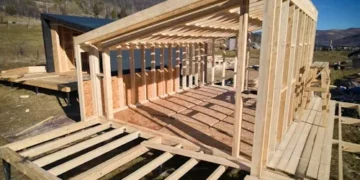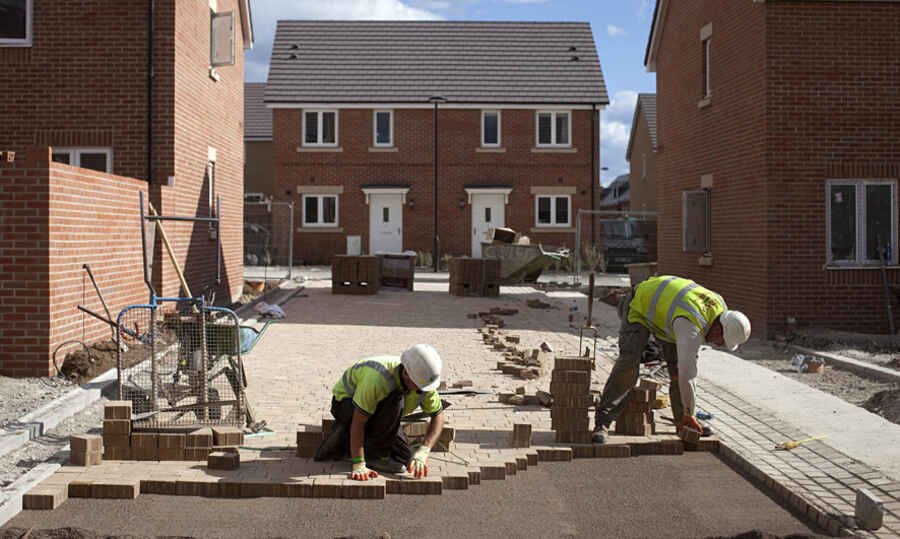Dreaming of a career where you can build impressive structures and lead construction teams?
Becoming a commercial construction contractor might be your ticket to the exciting construction world.
But how do you kickstart your journey to becoming a successful contractor? It may be challenging if you are a beginner.
Worry not! This article will explore the definition of a contractor and serve as your ultimate guide, providing instructions on becoming a commercial construction contractor.
So, without further ado, let’s get started.
What Does A Construction Contractor Do?
A contractor is like the brains behind construction projects. They oversee exciting projects like industrial buildings, medical facilities, marine construction sites, sports structures, restaurants, and hotels.
They’re involved from the very beginning of planning to the final construction. Contractors are the link between construction workers and clients, ensuring everyone communicates well.
They lead the construction teams and keep clients updated on progress. But contractors don’t just coordinate with workers and clients.
Also, they work with professionals like electricians, architects, plumbers, and carpenters.
Therefore, they have to communicate well with people and solve problems so that everyone understands each other.
How To Become A Commercial Construction Contractor
You need to follow these steps to become a commercial construction contractor:
1. Get College Experience And Education
To get a college education, you can take a few pathways. Some contractors start by finishing high school and gaining hands-on experience in the field. Others choose to pursue postsecondary education to expand their knowledge.
Earning a degree is a great way to go if you aim to meet the experience requirements for getting a contractor’s license. However, a bachelor’s degree is typically the minimum requirement that satisfies those criteria.
So, what kind of degrees should you consider?
Here are a few suggestions:
- Architecture: Design and construction basics to build your career on.
- Construction Science: Get technical and learn the science behind the construction.
- Construction Engineering: Combine engineering with construction for big and complex projects.
- Construction Management: Learn the business side with project planning and efficient resource management. In this course, you’ll learn about the basics of construction site management.
With these programs, you can gain the necessary knowledge and skills.
And what will you learn?
Stuff like project planning, engineering, management, construction estimating, contracts, project management, construction techniques, and even ethics. The whole package makes you a well-rounded contractor.
2. Gain Some Construction Experience
Get your hands dirty and gain some construction experience. It’s not just a resume booster but a requirement for that coveted contractor’s license.
The specific experience needed can vary by state, but usually, you’ll need at least three years in a construction-related role or apprenticeship. While studying, look for internships and cooperative education programs to understand the real deal.
If you’re eager to jumpstart your contractor career right after high school, consider specializing in carpentry or masonry. Start as a construction laborer and soak up that hands-on experience.
Contact licensed contractors and ask if you can shadow them on projects. Working under their guidance, you’ll learn the ropes and gain valuable insights into managing commercial construction.
3. Develop And Enhance Your Skills
You’ll need to develop some essential skills and knowledge to succeed. We’re discussing:
- construction equipment operation,
- construction practices,
- and building regulations.
But don’t stop there. Soft skills are critical, too, like written and verbal communication, problem-solving, supervisory skills, time management, and analytical skills. It is essential to prepare yourself for whatever comes your way.
4. Attain Certification
Earning certification will be an add-on to your portfolio. While it’s not always required, it will give you an edge in attracting new clients and staying ahead.
Several organizations offer certifications, like the International Code Council and more.
Certification will show you’re serious about your craft and have the skills and knowledge to do the job right.
5. Familiarize Yourself With Licensing Regulations
Want to take your contracting career to the next level? First, you’ll need to get licensed.
The process is simple.
First off, you need to contact your state’s licensing board. Just do a quick search online, and you’ll find it. Check which governing body regulates exam requirements and oversees licensing for construction contractors in your state.
It’s important to note that licensing regulations will vary depending on your specialty and the type of project you’re working on.
6. Complete Your Licensing Examination
The next step is to pass the licensing exam. Again, this might seem daunting, but you can ace it with some preparation.
Be sure to brush up on your state’s laws about construction and contracting and current building codes.
Consider taking some business management courses to strengthen your knowledge in that area.
Passing the exam is crucial to getting your contracting career off the ground, so give it your all.
7. Obtain A Contractor License Bond
Contractor license bonds ensure you play by the rules and follow state regulations in all your construction projects. Most states require them as part of the licensing requirements.
Before diving into a project, you must purchase a construction bond from a surety. They’ll do some financial and background checks to ensure you’re all good, and once approved, the bond is in your hands.
This provides peace of mind to the client building the project, knowing you’re accountable for your work.
Think of it as a safety net protecting them from unfinished business.
Wrapping Up
You’ve reached the end of our guide on becoming a commercial construction contractor. It takes determination, effort, and an eagerness to gain knowledge to pursue a career in construction contracting.
With this guide, you can gain the knowledge and experience needed to become a successful contractor in the construction industry.
Remember to stay current with industry trends and regulations and prioritize safety on the job site.
Good luck on your journey to becoming a contractor.
Recommended Posts:















